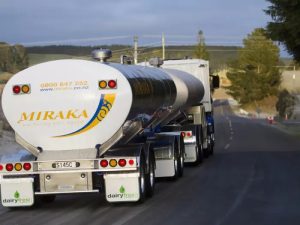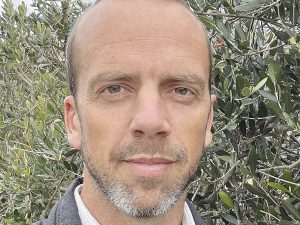
Fonterra and six other large fossil fuel users and suppliers are in the Supreme Court, fighting a case brought by environmental and Māori rights activist Mike Smith.
Smith (Ngāpuhi and Ngāti Kahu) wants to convince the Supreme Court that his case against seven large fossil fuel users and suppliers deserves to proceed to a full hearing with expert evidence and witnesses.
But the polluters argue they have no relationship with Smith and no duty of care to him. They’re asking the five Supreme Court justices to “strike out” the case.
Last year, the Court of Appeal struck out Smith’s claims that the “Polluting 7” are breaching common law principles by contributing to climate change. The Supreme Court is now hearing these pre-trial arguments, and that tikanga must also be considered.
Ultimately, Smith wants the court to grant an injunction forcing the companies to reduce their polluting activities.
The defendants – coalminer BT Mining, oil transporter Channel Infrastructure, farming company Dairy Holdings, dairy giant Fonterra (which burns coal to dry milk), energy company Genesis (which burns coal and gas to create electricity), NZ Steel (which also burns coal) and petrol and diesel retailer Z Energy – represent about a third of New Zealand’s annual emissions.
At the end of the hearing, Davey Salmon, QC, noted at least one of the defendants, Fonterra, had pledged to align with global climate accord the Paris Agreement and UN human rights principles.
A trial could determine how ready and able Fonterra and the others are to transition to lower-carbon activities, Salmon told the court.
Smith claims the companies’ activities are already and will continue to harm him and his Northland community. The hotter climate and rising seas will inundate land and cultural sites and impact fishing grounds and other taonga.
The Government’s domestic transition to net-zero is out of line with what scientists say is required to limit global heating to 1.5C, Smith’s lawyers argued. Therefore, Smith is asking the courts to uphold his rights.
Although the companies are contributing to climate change, they argue they do not have a relationship with Smith, and therefore an obligation to him when he is harmed by their actions.
Representing the defendants, Fonterra lawyer Daniel Kalderimis said that every person produces greenhouse gas. Because climate change is “entirely systemic”, he argued, it is not a traditional legal dispute between a plaintiff and a defendant.
Instead, the problem needed a “vast” solution, he added. “It’s a political question.”
Justice Joe Williams noted that Parliament sometimes prefers the courts to deal with difficult problems.
By allowing Smith to take a case against the seven polluters, the court could transform everyone into both a plaintiff and a defendant, Kalderimis argued.
Justice Susan Glazebrook wondered if this was a “convenient way” for large emitters to frame climate change.
Kalderimis denied that this argument meant Fonterra and the other companies were “shirking responsibility”. The companies need to change, he agreed, but this should happen through legislation passed by Parliament.
Smith’s desired outcome – an injunction forcing all seven to cease carbon-intensive activities – would not directly prevent the harm being caused to him by global warming, Kalderimis said. That would only be achieved if international courts followed suit.
This argument was echoed by Genesis’ representative, Simon Ladd. With the companies contributing one-third of New Zealand emissions – which are a small fraction of global outputs – the outcome would be “futile”. Even considering a recent ruling against oil giant Shell, Ladd argued it was unlikely to have the flow-on effects envisioned.
Also representing the defendants, Nicola Swan spoke about the Government’s efforts to reduce carbon emissions. It passed the Climate Change Response (Zero Carbon) Amendment Act and reformed the Emissions Trading Scheme. To align with the global goal of limiting warming to 1.5C, it promised to prevent 149 million tonnes of emissions before 2030 – though will need to outsource up to 102 million tonnes of the total.
The court was being asked to step in when legislators have already done considerable work, Swan said. The Government’s carbon-cutting path and tools planned for – or as she described, “expressly allowed” – ongoing emissions.
Tim Smith, Z Energy’s lawyer, proposed the seven companies could not be linked to the harm being experienced by the plaintiff, Mike Smith. When there are many contributors to an environmental issue, a claimant needs to trace the pollution back to the source, the lawyer asserted – noting this might be a contentious argument. With greenhouse gas, that was not possible. The court should consider if it is expanding common law, he added.
BT Mining, Channel and his client, Z Energy, are being sued as fossil fuel “nodes” or “choke points” but are not large emitters, Tim Smith said. It would be inappropriate to hold any supplier or manufacturer liable for the public nuisance caused by their products, he argued.
BT Mining’s lawyer told the court the Crown Minerals Act governs and approves the coal mining it undertakes.
The representative for Channel, Andrew Horne, said the company had shut down its petroleum refining plant, meaning the associated refining emissions are no longer produced in New Zealand. It is now a transporter of fossil fuels. It would be “a quantum leap” for such a company to be liable for harm caused by products, Horne argued.
In questioning, the Supreme Court justices raised the possibility of a court declaring that major emitters were acting unlawfully – without granting the plaintiff’s desired injunction.
Kalderimis responded that a trial with that outcome would take lots of time and resources in order for the courts to send a message to Parliament.
The justices reserved their judgment. It is expected to take months before the decision is announced.
























